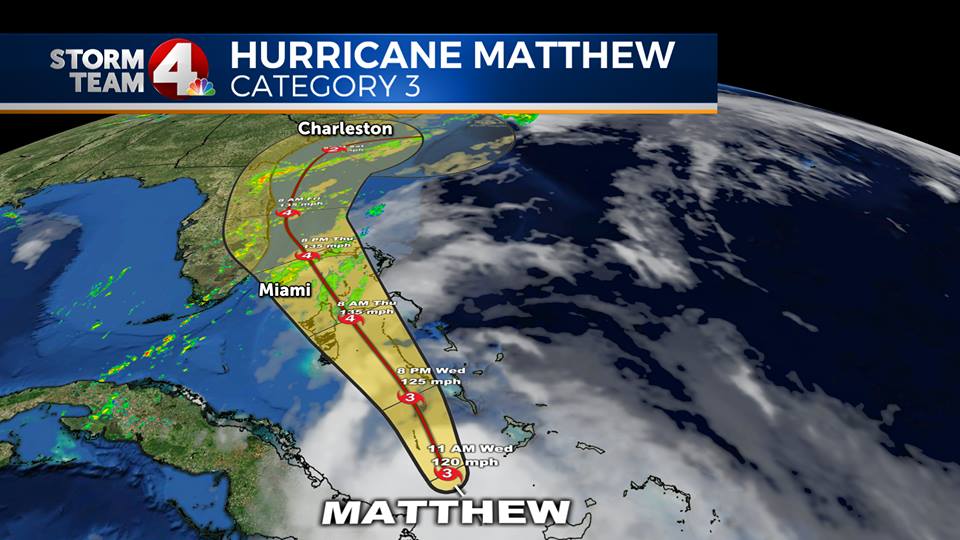MIAMI, FL (AP/WCMH) — Florida Gov. Rick Scott says the state could be facing its “biggest evacuation ever” because Hurricane Matthew is threatening almost the entire Atlantic coast of Florida.
Scott said Wednesday he didn’t know how many people would be ordered to evacuate because it is left up to the counties, but he says every county along the coast is focused on it and has been preparing.
So far, only Brevard and Martin counties have issued mandatory evacuation orders.
Late this afternoon, Hurricane Matthew is still packing sustained winds of 120 mph, after crossing the southwestern peninsula of Haiti, where winds were as high as 145 mph (Category 4) at landfall. Matthew continued northwest, brushing the eastern tip of Cuba, which is quite mountainous, and is now in the southwestern Atlantic.
President Barack Obama is being briefed on the federal government’s preparation for Hurricane Matthew as the Category 3 storm makes its way to the U.S. mainland.
The president says now is the time to “hope for the best but we want to prepare for the worst.”
Obama is at the Federal Emergency Management Agency’s headquarters. FEMA has deployed personnel to emergency operation centers in Florida, Georgia, South Carolina and North Carolina. It’s also positioning commodities and other supplies at Fort Bragg in North Carolina and in Albany, Georgia.

Government officials are worried about complacency, especially in South Florida, which hasn’t seen a major hurricane in 11 years.
Computer models shows Matthew strengthening back to Category 4 intensity Thursday over warm water and the flatter islands of the Bahamas, bringing up to two feet of rain and a storm surge of 10 feet or higher.
By late Thursday, Matthew’s outer winds will begin affecting Florida, especially near the Atlantic coast, where hurricane warnings and watches extend all the way from Key West northward to a little south of Jacksonville. The projected track should take Matthew near the coast through Friday, before the storm turns east and passes south of the Carolina coastline on Saturday.
The beach town of Folly Beach on the South Carolina coast southwest of Charleston is closed to everyone except residents and essential personnel. The barrier island is subject to erosion and its beaches and a county park at Folly have been heavily damaged in storms in years past.










